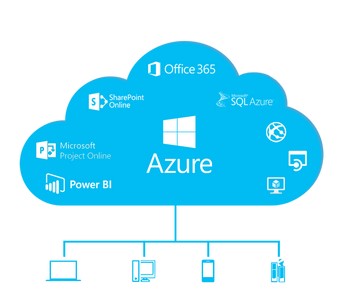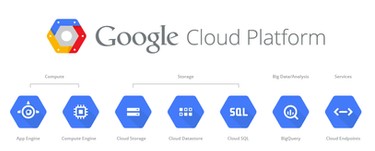Top 3 cloud service provider companies in the world: Discover more about the Cloud competition

The Cloud simplifies all IT functions and prevents any disruptions. Increasing amount of corporations implement cloud computing on the IT side of their businesses by simplifying processes to save time and contribute to the core business of the corporation.
Cloud computing has increased its influence within many different industries, thus increasing its share on the IT infrastructures of many top companies. Offering the range of on-demand computer system resources, it demonstrates to be very useful in supporting efficiently the core business by taking care of the IT obstacles. Therefore, cutting costs and increasing productivity. This year, 2020, has been the year of enormous changes, man customers and corporations have moved to improving their IT section and therefore this leads to a few key important trends that will be discussed shortly.
The COVID-19 pandemic led to an increased the usage of video conferencing tools following the stay-at-home orders. Collaboration tools such as Microsoft Teams and Google Meet became main companies’ broader cloud ecosystem. Furthermore, the cloud can bring multiple services that can ease the IT sector of a company, for instance in order to make the businesses data safer and easier to store, the multi-cloud is becoming more used for computing and storage services in a single heterogeneous architecture. This method of IT functionality allows vendors to create platforms that can plug into multiple clouds. According to the Magic Quadrant for the cloud infrastructure below; Amazon Web Services, Microsoft and Google are the top cloud providers (Gartner 2019). We will explore the three top cloud providers below.

Amazon Web Services was the first cloud computing in 2008, they are now the leading corporation in the field. Now they are a major player in AI, database, machine learning and serverless deployments. AWS uses machine learning as well as a number of other high-tech functions such as the Internet of Things (IoT) and Serverless Computing (Lambda).

AWS products are easy to use since it is designed to allow application providers and vendors to securely host the client’s applications. The AWS Management Console or web services APIs are both available to access AWS’s application hosting platform. The platform also offers major flexibility by letting the client select the operating system, programming language and any other services that need tailoring.

Microsoft Azure is now one of the leading cloud computing corporations, being one of the corporation’s favourites. Most of its revenue derived from Office 365, Dynamics, and other software-based cloud services. The COVID-19 pandemic fuelled Microsoft’s Microsoft Teams for remote working. Their cutting-edge technology includes Microsoft’s Azure Machine Learning Studio enables specialised developers to write, test and implement algorithms.

Google Cloud Platform offers industry-leading tools for deep learning and artificial intelligence, machine learning and data analytics. It is a good option for companies that are open source and DevOps-centric. GCP has many great discounts that attract plenty of customers, for instance their free use of 1GB of Google Cloud Datastore capacity.

Last but not least, Alibaba and Huawei are also leading companies in the Cloud business. Alibaba Cloud has a range of products and services. For instance, the Object Storage service clients can store, backup and archive data safely. The storage services are encrypted, secure and with a 99.999999999999% guarantee durability. Moreover, the Apsara file storage NAS filescan be stored for ECS, HPC, Container. Lastly, the Elastic Block Storage includes a high-performance, high-reliability and low-latency bock storage service.
Huawei Cloud is one of the top Cloud providers with their HUAWEI CLOUD Stack which is a cloud infrastructure on premises of government and enterprises which offers seamless service experience on cloud and on premises. They come in many editions which can be tailored to the customer’s needs. Some examples include moving legacy applications and workloads to the cloud, big data analytics and AI training, and building large-scale city clouds and industry clouds.
As we have explored throughout this article, top cloud providers offer many cutting-edge technologies and many corporations have taken the step to indulge their business within the cloud computing generation. The advantages are plenty, the most important features are:
1. Cloud Storage can Save Costs – moving to the cloud reduces the need to purchase hard disks, the enclosures that contain them.
2. Regulatory compliance – Keeping the backups in the same region it originates prevents any regulatory problems.
3. Ransomware/Malware protection
4. Data Redundancy is included
5. Data Tiering for Cost Saving
Transitioning from a local disk to the cloud is becoming more common for businesses as well as consumers. Even if it has some small drawbacks, moving from a disk to the cloud can be stressful and it can take more time to upload the data. However, it is very clear that the advantages outplay the disadvantages. Keep posted for our next Blogspot article for further information on the Cloud where we will discuss the advantages of moving to the Cloud and whether it is suitable for you/your business.



